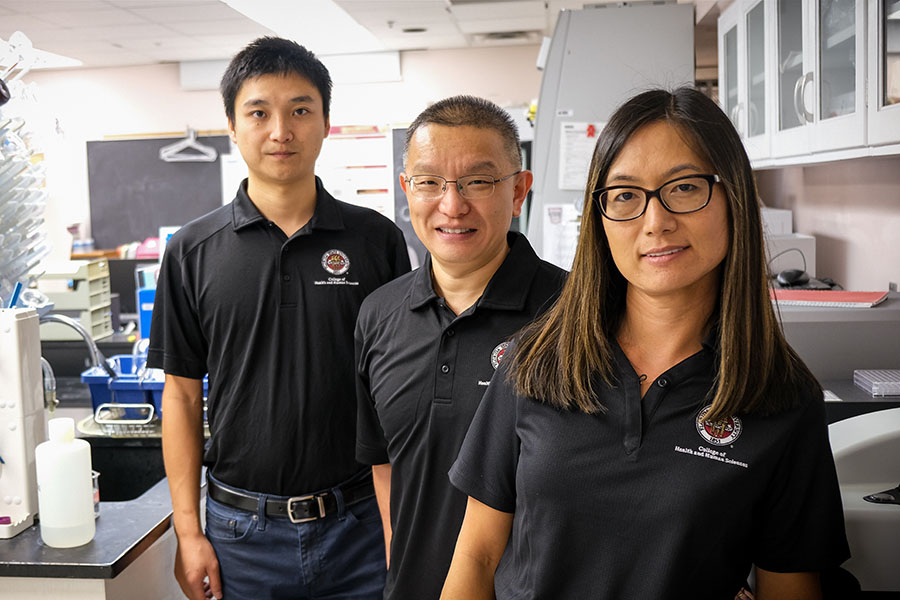
A Florida State University researcher received a $750,000 grant to recruit, train and prepare traditionally underrepresented students for nutrition and food science research and graduate programs at FSU. The three-year grant was awarded by the National Institute of Food and Agriculture, an agency within the U.S. Department of Agriculture (USDA).
Qinchun Rao, associate professor at FSU’s College of Health and Human Sciences, is leading the research- and education-focused collaboration with Florida A&M University and Virginia State University, both historically Black institutions.
Through the collaboration, Rao and his team hope to improve the pipeline for diverse undergraduate students to pursue nutrition and food-science graduate programs at the FSU College of Health and Human Sciences and contribute to key research areas.
“I’m a two-time alumnus, and I really want to enhance the capacity of our food and nutrition programs,” said Rao, who received his master’s degree and doctorate in food and nutrition from FSU. “That’s one of my career goals, and with this grant we can conduct research, recruit strong students, support student research activities, send students to conferences at the state and national level, and continue to build our program while also focusing on diversity.”
The grant will fund new and modified courses in food and nutrition science. It will also help provide scholarships, fellowships and assistantships for undergraduate and graduate students in addition to professional development activities for faculty.
The team will work closely with FSU’s Center for Academic Retention and Enhancement to support the grant’s focus on student recruitment, retention and educational equity.
“We’re focusing on integrated research and directly supporting students by providing undergraduate internships where they will receive basic bench-work training and gain experience conducting and presenting research,” Rao said.
Supporting student involvement in research will help fuel discovery in the areas of food safety and food systems sustainability, priority concerns for the USDA.
“This collaborative research effort provides a platform for exposing students at Virginia State University to state-of-the-art research and technologies,” said Yixiang Xu, co-project director and professor at VSU’s College of Agriculture. “The training will help students improve critical thinking and communication skills and strengthen their academic experience and job-market competitiveness.”
Research projects supported by the grant include studies on improved food safety practices for seafood and the development of innovative and sustainable food packaging using grape pomace, the residue left after grapes are processed for wines and juices.
“Creating more opportunities for students to engage in important research also helps attract students from different backgrounds in chemistry, biology and engineering, for example,” Rao said.
The collaboration among institutions supports a multidisciplinary scientific approach in multiple fields including food chemistry, nutrition, engineering and biotechnology.
“We are excited about this new partnership and hope that our collaboration will help train FAMU students on the most forefront technologies in the area of food processing and nutrition science,” said Juzhong Tan, co-project director and assistant professor at the College of Agriculture and Food Science at FAMU. “We also expect that this project will open the door for more collaborations between FAMU and FSU in multidisciplinary research and teaching programs.”
Co-directors on the project also include FSU College of Health and Human Sciences faculty members Leqi Cui and Haiyan Maier.




